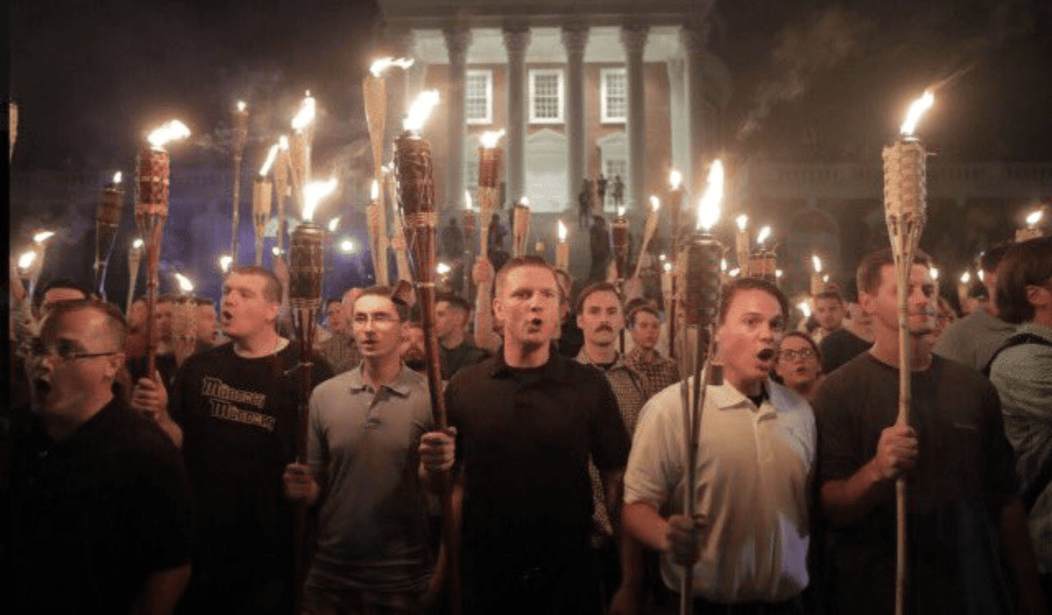On Thursday, The New York Times published an op-ed calling on the American Civil Liberties Union (ACLU) to “rethink free speech.” The op-ed was entirely wrong-headed, arguing that Left-wing activism should outweigh the organization’s commitment to the First Amendment. While the ACLU has a stellar record on free speech, its liberal activism may already have undercut that commitment in the exact way the Times demanded. The ACLU should reject these arguments and preserve its record on free speech.
In the op-ed, K-Sue Park, a housing attorney and Critical Race Studies fellow at the University of California-Los Angeles (UCLA) School of Law, acknowledged that the ACLU “has a long history of defending the First Amendment rights of groups on both the far left and the far right.” Park was correct, and the ACLU’s free speech activism even led the group to defend the white supremacists’ rights this past weekend in Charlottesville, Va.
Park argued that this activism was wrong-headed. “While admirable in theory, this approach implies that the country is on a level playing field, that at some point it overcame its history of racial discrimination to achieve a real democracy, the cornerstone of which is freedom of expression,” the UCLA fellow author wrote.
She expressed her “respect” for the ACLU’s work, mentioning that she interned with the organization in 2011, but nevertheless attacked its free speech activism. “By insisting on a narrow reading of the First Amendment, the organization provides free legal support to hate-based causes. More troubling, the legal gains on which the A.C.L.U. rests its colorblind logic have never secured real freedom or even safety for all,” Park argued.
The UCLA fellow claimed that “numerous other factors” not addressed in the First Amendment “chill” the voices of “marginalized communities” while amplifying others.
Park listed three kinds of speech suppression: the freedom of citizens and nonprofit groups to donate money to political causes as guaranteed in the 2010 Supreme Court decision Citizens United v. FEC, the police intimidation of African-Americans and Latinos, and the death threats against people who speak out against white supremacists.
“The government’s power is not the only thing that can degrade freedom of expression,” Park argued. On this, she is correct. But the fact that non-governmental pressure can stifle speech does not justify the government also stifling speech. These are two separate issues. Furthermore, Park’s suggestion that the ACLU’s commitment to free speech is premised on the country having “overcome its history of racial discrimination” is utterly false. Even if racism were more rampant than it is today, the First Amendment would still be a fundamental right to protect free speech against government intrusion.
The Citizens United decision protected the free speech of groups of individuals (unfortunately characterized as “corporations”) to spend money advocating political speech. Ironically, this decision not only benefitted unions but also enabled private citizens to raise money for candidates who challenge the status quo. Contrary to Park, this was a free speech victory, and it allowed Americans to support causes anonymously. The ACLU was right to champion it.
Both Republicans and Democrats acknowledge that the criminal justice system is broken, and support reform. Tying this issue to free speech would be dangerous, however, as it might encourage the government to support some speech over others, becoming an arbiter in the public square.
Finally, death threats are not covered by free speech. This is violent speech and inciting speech, and the ACLU does not defend it. Furthermore, this kind of public intimidation is not unique to the Right. Dentist Walter Palmer received death threats after he killed Cecil the Lion in 2015. Donald Trump’s former campaign manager, Kellyanne Conway, received death threats because the Trump campaign was attacked for supporting white supremacy. A pastor in West Virginia was forced to move due to death threats for his opposition to the LGBT rainbow flag on Facebook.
If death threats constitute structural oppression, society is structurally oppressive of far more than just racial minorities.
On each of these issues, the ACLU is entirely on the right side in protecting free speech and the First Amendment. There is one particular issue where the ACLU is wrong, however, and it is important not to overlook. Ironically, the ACLU is following Park’s advice in allowing its politically liberal commitments to blind its advocacy on key free speech issues.
On June 26, when the U.S. Supreme Court announced it would consider Masterpiece Cakeshop v. Colorado Civil Rights Commission, the ACLU submitted a brief opposing baker Jack Phillips’ right to refuse to participate in a same-sex wedding.
In 2012, the Colorado Civil Rights Commission accused Jack Phillips, owner of the Christian bakery Masterpiece Cakeshop, of discrimination on the basis of sexual orientation. He had denied to bake a wedding cake for Charlie Craig and David Mullins, on the grounds that he would not lend his public support to a same-sex wedding.
This was well within Phillips’ First Amendment rights, and was not discrimination. Phillips did not turn away Craig and Mullins because of their sexual orientation, but because he would not lend his efforts to support a public event on the grounds that he did not consider a same-sex marriage to be a marriage. Phillips has the right to free association (not to associate with LGBT events), free exercise of religion (refusing to endorse a same-sex wedding as a wedding on religious grounds), and free speech (refusing to lend public support to an event he disagrees with).
But the ACLU did not see it this way. In its brief, the ACLU wrote that Phillips’s company “does not deny that it refuses to provide same-sex couples certain goods that it provides to different-sex couples—specifically, baked goods for a wedding—regardless of the customers’ desired design or message (if any) to be displayed on the cake. Rather, it argues that the First Amendment guarantee of freedom of speech entitles it to engage in this discrimination.”
Again, this is not discrimination, and the ACLU even admitted this. Phillips denied the couple “baked goods for a wedding.” That’s the key issue — the cake would be for a wedding. Phillips is refusing to lend his free speech, free association, and free exercise of religion to a same-sex wedding. Contrary to the ACLU, this is a free speech case.
The issue isn’t just with Phillips, however. Others in this predicament include Washington state florist Barronelle Stutzman, Oregon bakers Aaron and Melissa Klein, and Michigan farmers Steve and Bridget Tennes. Each of these people did gladly served LGBT people in other settings, so they were not discriminating against LGBT people. They all refused to provide goods specifically for same-sex weddings, on the grounds that doing so would constitute speech in favor of same-sex marriage.
It seems reasonable to expect the ACLU, an organization with a stellar record on free speech, to support Jack Phillips. But the ACLU seems to have a special blindness on LGBT issues, the same kind of political blindness Park is demanding it have for other groups.
In May, the organization sued a Roman Catholic hospital in California after it turned away a transgender man who sought a hysterectomy there last August. The hospital refused to offer a hysterectomy, not due to discrimination against transgender people, but because it considers the removal of a healthy set of female sex organs to be harmful, and therefore violates the Hippocratic Oath, as well as the hospital’s own religious commitments to human health.
In a statement to PJ Media, Mercy San Juan Medical Center spokeswoman Melissa Jue explained their policy: “We do not provide elective sterilizations at Dignity Health’s Catholic facilities in accordance with the Ethical and Religious Directives for Catholic Health Care Services (ERDs) and the medical staff bylaws.”
Even so, the hospital referred the transgender man to another facility which would provide the procedure. Still, the ACLU sued, calling the hospital’s actions “a clear-cut case of discrimination.”
The ACLU’s odd opposition to free speech and religious freedom in this case, and in Masterpiece Cakeshop does not invalidate the organization’s stellar record in opposing government restrictions on speech. Not only did the ACLU defend the white supremacists in Charlottesville, but it also defended alt-right personality Milo Yiannopoulos (along with PETA and an abortion pills group) in a joint-action lawsuit against Washington, D.C.
Park was very, very wrong to call the ACLU to water down its commitment to free speech in order to support Left-wing causes. But the ACLU should respond by doubling down on the First Amendment. The ACLU supports free speech even when uttered by white supremacists. Why can’t it support free speech even when exercised against the LGBT agenda?
Perhaps the ACLU has already listened too much to Park’s objections, in choosing liberal activism over free speech in LGBT cases. The ACLU should know better, and respond to Park’s absurd suggestion by supporting Jack Phillips and dropping the lawsuit against the Catholic hospital.
It could even go so far as to defend the Daily Stormer’s right to exist on the Internet, on the grounds that if companies remove one site from the web, they could remove others.
The ACLU has an opportunity to shoot down The New York Times and display its commitment to free speech. What are they waiting for?









Join the conversation as a VIP Member